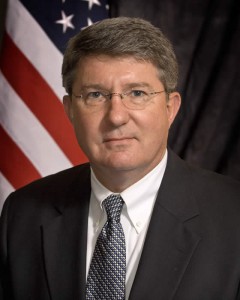Whistleblower: Sarbanes-Oxley Applies to Contractors of Public Companies

In March 2014 the U.S. Supreme Court found that ethical protection for whistleblowers extends to not just publicly traded companies but to their contractors’ employees as well. The Supreme Court stated whistleblowers employed by companies doing business with public companies who reported fraud covered under the Act must be afforded the protection from prohibited adverse action to effect the intention of the Sarbanes-Oxley Act.
Companies doing business with publicly traded companies covered by Sarbanes-Oxley should add this factor to their risk management, compliance and ethics programs. Company Executives should advise their Boards of this ethical consideration and provide programs and reporting avenues to alleviate the risk of this type of prohibited personnel actions.
In Lawson v. FMR LLC, 571 U. S. ___ (2014), slip op 12-3, March 4, 2014, the Supreme Court in a 6 – 3 decision ruled that the whistleblower protection found in Sarbanes-Oxley Act of 2002, 18 U.S.C. §1514A, extends to employees of a publicly traded company’s private contractors and subcontractors. This interpretation upholds the purpose of the Act, to safeguard investors in public companies and restore trust in the financial markets. The Supreme Court reasoned that many times the public companies covered by Sarbanes-Oxley Act are managed by or act through their contractors or subcontractors. To restrict the protection for shareholders and the public by allowing acts of retaliation for the reporting of covered fraud would in effect eviscerate that needed provision of the Act that encourages the reporting of fraud covered by the Act.
Through zeal to protect the business relationship, a manager in non publicly traded company could take adverse personnel action against an individual that reported covered fraud. The Whistleblower protections and liability under Sarbanes-Oxley would then flow to that manager’s company. Companies that do business with publicly traded companies should implement plans to recognize and to avoid that risk.
For more about whitleblower actions contact Jim Greenlee.